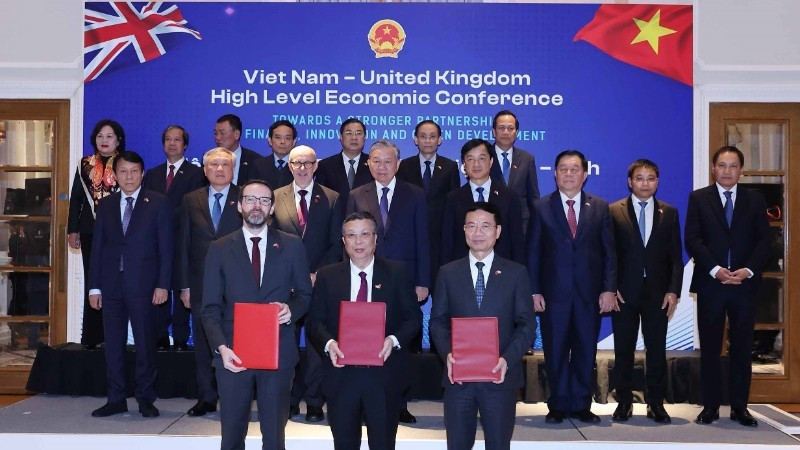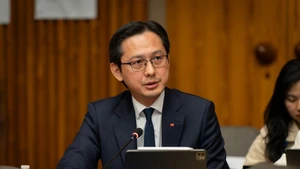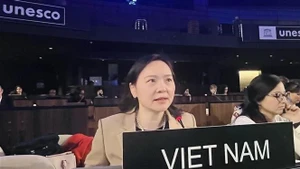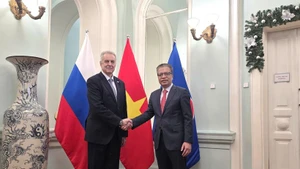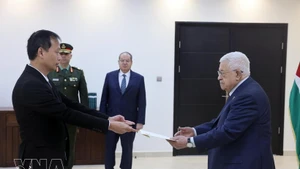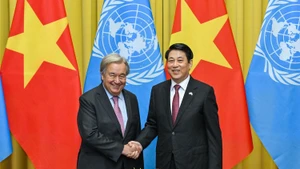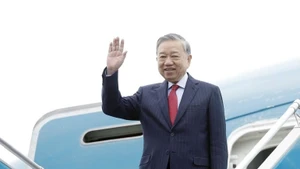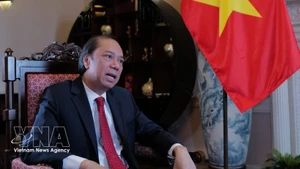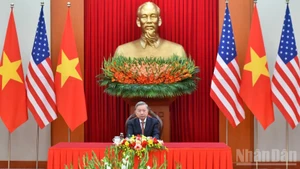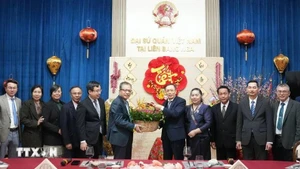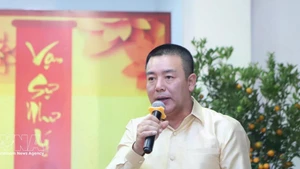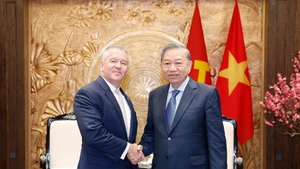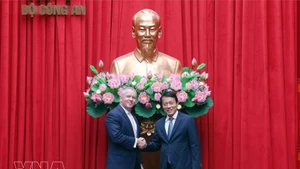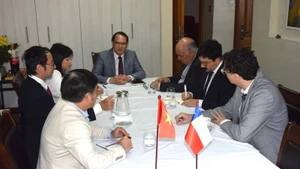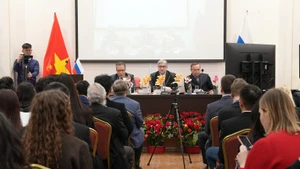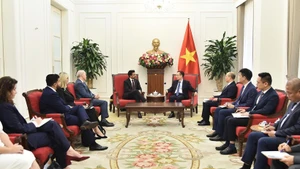As one of the first Western nations to establish diplomatic relations with Viet Nam, for more than half a century, the friendship and close bond between the peoples of the two countries have been continuously strengthened and developed. The official visit by Party General Secretary To Lam, his spouse, and the high-level Vietnamese delegation took place on the occasion of the 15th signing anniversary of the Viet Nam–UK Strategic Partnership — a significant milestone for both nations to reflect on their past cooperation and set out new visions and directions for the next phase of bilateral relations.
According to Vietnamese Ambassador to the UK Do Minh Hung, the strategic partnership between Viet Nam and the UK has developed very positively, achieving notable successes across bilateral cooperation areas as well as through effective coordination at multilateral forums and international organisations. The UK is currently Viet Nam’s third-largest trading partner in Europe, while Viet Nam is the UK’s largest trading partner in Southeast Asia. Over the years, trade between the two countries has maintained a growth rate of 18–20% per year. Cooperation in education, training, science, and technology has been a highlight, recording many important advances in recent years. The UK has actively supported English language training capacity in Viet Nam and expanded scholarship opportunities for Vietnamese students to study in the UK. Around 15,000 Vietnamese students are currently studying at British universities, colleges, and secondary schools, while thousands of Vietnamese professionals and scholars are working in science, technology, finance, and innovation sectors in the UK, creating a solid foundation for developing high-quality human resources to meet the demands of the global technological and innovation era.
In discussions with British counterparts, Party General Secretary To Lam noted that alongside the positive outcomes achieved so far, economic, trade and investment cooperation between Viet Nam and the UK has yet to match the good political and diplomatic relations, as well as the potential, strengths and cooperation opportunities of both countries. He emphasised the need for new practical cooperation models that can deliver measurable outcomes and bring direct benefits to both peoples.
During talks, Party General Secretary To Lam and Prime Minister Keir Starmer agreed to issue a Joint Declaration upgrading bilateral ties to a comprehensive strategic partnership, built upon six key pillars of cooperation. Both leaders set a goal to double bilateral trade turnover in the near future. Prime Minister Starmer expressed his desire to advance the comprehensive bilateral partnership and reaffirmed the UK Government’s readiness to assist Viet Nam in achieving its commitment to net-zero emissions by 2050. He encouraged British enterprises to strengthen investment and cooperation in Viet Nam and pledged support for Viet Nam’s implementation of the Just Energy Transition Partnership (JETP). The Prime Minister also shared his hope for Viet Nam’s support in expanding cooperation on e-commerce and financial services within the framework of the Comprehensive and Progressive Agreement for Trans-Pacific Partnership (CPTPP).
A series of agreements in economy, green finance, education and training, healthcare, clean and renewable energy, and local cooperation were signed during the visit, forming a solid foundation for deepening bilateral cooperation. The Viet Nam–UK High-Level Economic Conference featured dynamic discussions and practical proposals in finance, technology and energy, highlighting the cooperation potential between the two countries and their shared desire to turn strategic visions into concrete actions.
In the Joint Declaration, the UK reaffirmed its continued support for Viet Nam in promoting English language teaching and training, with the goal of making English a second language in Vietnamese schools by 2035. Both sides will effectively implement the 2025 Memorandum of Understanding on Cooperation in Science, Technology and Innovation, enhancing collaboration in healthcare, green growth, and breakthrough technologies. Viet Nam and the UK also agreed to strengthen cooperation in developing Viet Nam’s international financial centres in Ho Chi Minh City and Da Nang. This initiative leverages the UK’s experience as a global financial hub and green capital market leader. It aligns with Viet Nam’s goal of developing international financial human resources through training programmes, expert exchanges, and partnerships among major financial centres, creating opportunities for a new generation of Vietnamese professionals to gain international management experience.
The UK is currently making substantial investments in artificial intelligence (AI) and is a global leader in AI research and development, thanks largely to world-renowned universities such as Oxford, Cambridge, Edinburgh, and University College London — institutions that supply much of the country’s top AI talent. Beyond academia, the UK also boasts a thriving private AI sector. During the visit, Party General Secretary To Lam visited the University of Oxford — one of the world’s leading centres of higher education — which has established cooperation with several Vietnamese institutions in fields such as biomedical sciences and physics.
In his policy address at Oxford, the Party General Secretary emphasised that for Viet Nam to advance in a rapid, sustainable, and proactive manner, the country cannot rely solely on natural resources, cheap labour, nor a large workforce. Instead, Viet Nam has chosen a clear path: science and technology, innovation, digital transformation and the knowledge economy will serve as the primary drivers of growth in the coming period. He proposed avenues for cooperation between Viet Nam and Oxford University in training and joint research in key areas such as public health, biotechnology, nuclear science and fundamental sciences, expressing his belief in establishing a shared network of knowledge and technology linking educational institutions and localities of both nations.
Building upon a solid and long-term strategic partnership, the two countries have now elevated their relationship to a comprehensive strategic partnership, clearly reaffirming their status as long-term strategic partners shaping new standards of cooperation in the 21st century. Expressing his delight at this achievement, Party General Secretary To Lam expressed his hope and belief that if both sides work together to build a substantive and comprehensive strategic cooperation framework based on mutual respect, mutual benefit and a long-term vision, Viet Nam–UK relations will not only reach a new height on the contemporary diplomatic map but also become a driving force, a model and a shared success story for both nations.
